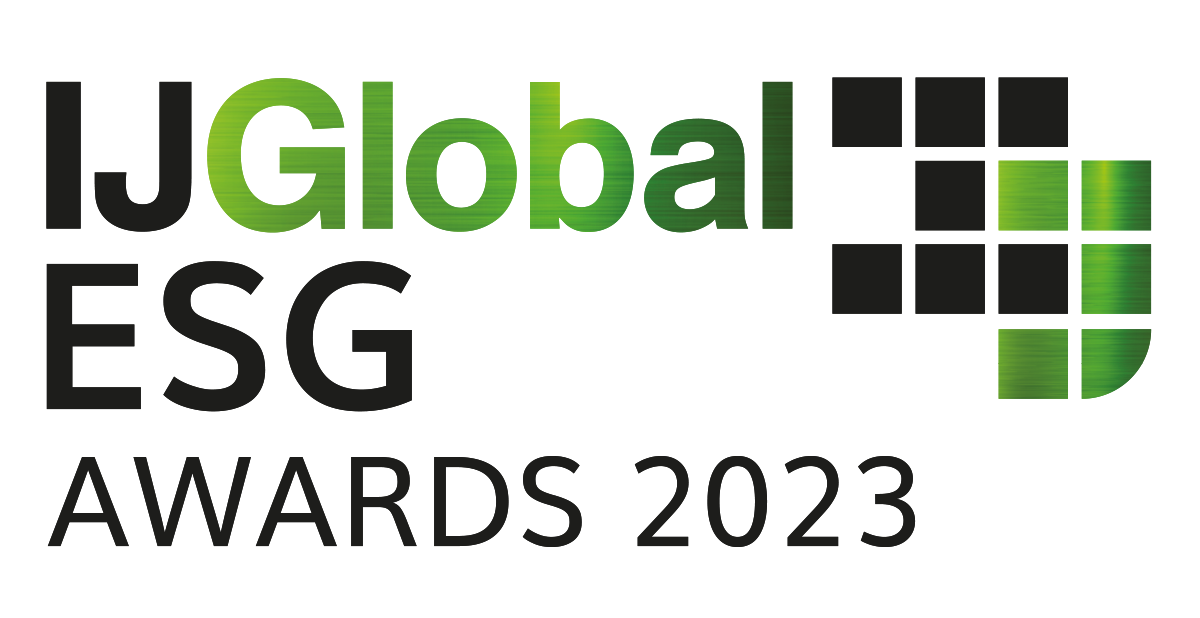IJGlobal ESG Awards – Solar, MENA – Abydos Solar
AMEA Power’s 500MW Abydos Solar PV Plant in Egypt is the winner of the IJGlobal ESG Awards 2023 trophy for solar power in the MENA region, described by one of the judges as a project that displays “strong local commitment”.
Another of the independent panel of judges pointed out: “Its lifecycle focus and view of plant decommissioning as a point of system regeneration – rather than an end point – is critical to delivering on circular economy objectives in this sector.”

Abydos Solar PV Plant reached financial close on 30 November 2022 with significant support from the IFC, JICA and Dutch development bank FMO.
The project is located in the Aswan Governorate and it is one the largest projects of its kind not just in Egypt, but across Africa. It was conceived from the ashes of the voluntary cancellation of a mega coal-fired power plant that was supposed to be built just 3 years prior.
It is one of the projects to be implemented under the Government of Egypt’s (GoE) ambitious objectives announced at COP-27 to move firmly away from carbon-intensive generation to reap the benefits of the sustainable green economy.
Over the life of the project, 19.5 million tonnes of CO2 will be avoided, all the while powering 256,500 households.
A new department within AMEA Power – AMEA Net Zero, that manages the environmental attributes of its projects – achieved significant milestones, including receiving a positive validation report for the solar PV project under Gold Standard.
Egypt’s natural resources for producing renewable energy from solar are among the best in the world. Its irradiance metric in the south of the country is very high at more than 2,400kWh/m2.
The BOO programme tariffs, set initially through competitive tenders – and then negotiated for subsequent projects – are priced well below both Egypt’s average cost of generation and even its marginal cost of production for the country’s fleet of gas-fired plants. Accordingly, Abydos tariffs were set at $0.02/ kWh, by far one of the lowest tariffs for wind anywhere in Africa, and among the lowest globally.
According to the submission: "Renewables must be deployed with respect for nature, social inclusion and in close cooperation with broader society along the project’s lifecycle.
“Therefore, at each stage of the project, different ESG topics are given priority along the value chain.
“For instance, at procurement and supply chain level, we are conscious of the finite life of the equipment installed in our renewable energy projects and the importance of planning for the end-of-service life after its replacement.
“We endeavour to integrate optimal efficiency and longevity in all stages of the project lifecycle and view decommissioning as a point of system regeneration rather than an end point. This kind of forward-looking approach creates tangible, long-term value for our project, while minimising impact to the environment.
“We intend to work in partnership with our suppliers to reuse, recycle and minimise the disposal of the dismantled equipment and material where possible. Disposal of any excess material is governed by local environmental regulations and guidelines, especially for hazardous waste.
“In case of project decommissioning, land would be restored to predevelopment state or other capacity, in line with local regulations and guidelines.”
Request a Demo
Interested in IJGlobal? Request a demo to discuss a trial with a member of our team. Talk to the team to explore the value of our asset and transaction databases, our market-leading news, league tables and much more.